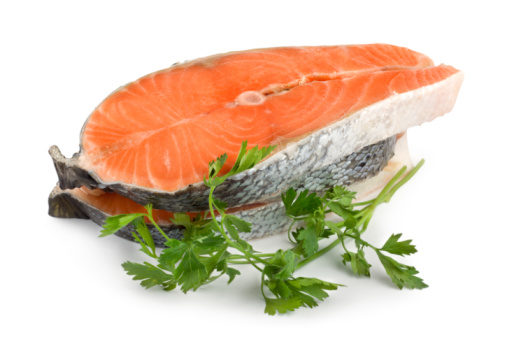The much-debated decision over whether to introduce a genetically modified organism (GMO) into the U.S. food supply is drawing near for the U.S. Food and Drug Administration (FDA). The GMO is a proprietary species of salmon bred by the biotech company AquaBounty Technologies, and would be the first GMO to be placed on store shelves in the United States.
Analysts indicate, and statements from FDA seem to imply, that the salmon is likely to be approved. FDA has said that they would not require special labeling for the GM salmon, which is a gene-modified version of North Atlantic salmon that grows twice as fast as its natural counterpart. Consumers would then be unable to differentiate between the Aquabounty salmon and natural salmon at their local supermarkets.
FDA has also concurred with AquaBounty’s assessment that the salmon is safe for consumption, and tastes the same as other salmon. An FDA hearing was held in September with an expert panel, which advised the agency that the GM salmon appeared safe, but that more research was needed. Many critics, some of which are concerned about allergic reactions in humans, say it is completely unknown whether GMOs are safe to eat, or what side effects there could be.
Some are also concerned that the GM salmon, which will not reproduce but be grown and raised in farms, might escape into the wild and affect ecosystems, as well as outcompete natural salmon. The company says that the salmon are bred to be infertile, but other reports indicate that a small percentage may remain able to reproduce.
Still other critics question the very process FDA is using to decide on the matter. Wenonah Hauter, director of the advocacy group Food & Water Watch, has said that since modified foods of this type are being regulated under the same process used for animal drugs, it allows AquaBounty to withhold some information.
“With all due respect, we don't believe a veterinary advisory committee is the appropriate place to discuss these food safety issues,” Hauter commented at the FDA hearing.
FDA is delaying its final decision on whether the fish can be introduced to market. The government group is awaiting further research, it says, but though a decision could be months away, analysts say an approval could see the GM salmon on U.S. store shelves by 2012.
To this point, only GM agricultural products and GM goat’s milk used for a pharmaceutical drug have been introduced into the U.S. food supply.
Published in WholeFoods Magazine, November 2010 (published ahead of print on September 28th, 2010)










